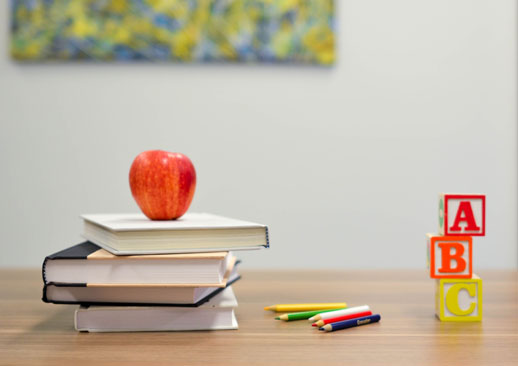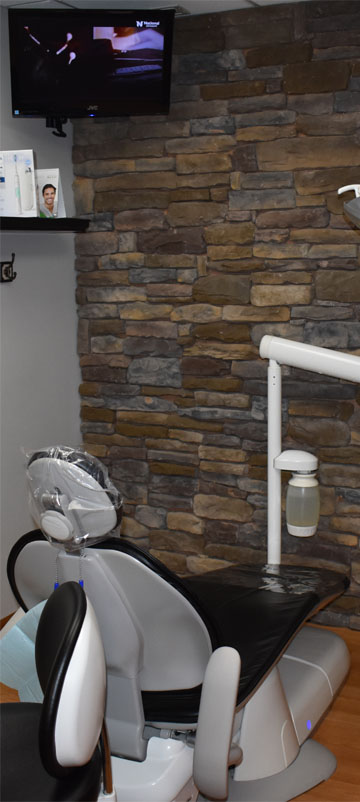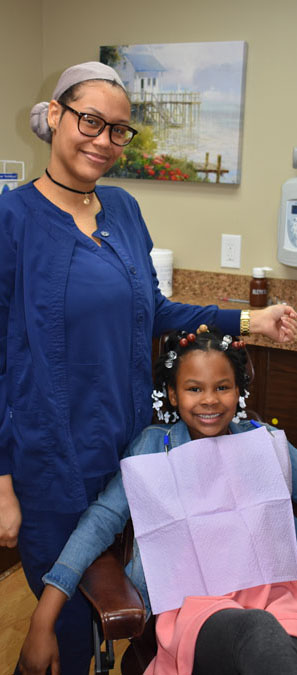 School will be back in session before you know it. Whether your child will be in the classroom or learning from home, a healthy smile is still a back-to-school essential.
School will be back in session before you know it. Whether your child will be in the classroom or learning from home, a healthy smile is still a back-to-school essential.
Some schools require aback-to-school dental exam. Still, it’s always a good time of year to schedule one of your child’s regular visits. “We can help spot and take care of any issues so your child doesn’t have to miss class once school starts,” says ADA pediatric dentist Dr. Mary Hayes. “It’s also a great time to help get back on track if some of your child’s dental habits fell away during summer, when normal routines can go out the window and there are a lot more treats around.”
And just as this school year might be looking a bit different for your child, their back-to-school appointment will have some changes too. Read “COVID-19: What to Expect When Your Dentist’s Office Reopens” to learn more about the steps your child’s dentist is taking to keep them safe at their appointment.
Here are a few questions to ask at your child’s appointment:
How Is My Child’s Overall Dental Health?
The dentist will be looking at the big picture of your child’s mouth, including teeth and gums. “We will check to make sure teeth are lining up correctly, your child’s bite is in good shape and to keep an eye out for any [orthodontic] issues that may show up later,” Dr. Hayes says. “We’re also making sure baby teeth are going to the Tooth Fairy like they should.”
Will My Child Get a Cleaning Today?
This is a must, no matter how well your child brushes. “Even if your child—or you, for that matter—brushes twice a day, it’s not possible to get rid of all the bacteria that can lead to cavities,” Dr. Hayes says. “And on the other hand, you may have a child who goes off to camp and never opens their toothbrush.”
That’s why a professional cleaning goes a long way. “It removes more of the cavity-causing bacteria and helps to keep gum tissue healthy,” she says. “It can also remove most or many stains from teeth.”
Does My Child Need an X-Ray?
X-rays help your dentist see how your child’s teeth are developing and make sure the tooth roots are healthy. They also are used to see if there is any tooth decay between your child’s teeth. “The decay process can move very, very fast, so the earlier we can catch it, the better,” Dr. Hayes says.
Your child won’t need an x-ray at every visit. “We do them only when necessary,” she says.
Can You Check My Child’s Mouthguard?
If your child plays sports year-round, make sure you bring his or her mouthguard along so your dentist can check for wear, tear and fit. “If your child is having a growth spurt, losing teeth and getting new ones, the mouthguard might need to be redone,” she says.
What Are Sealants?
Sealants can be another way to keep your child from getting cavities, but they’re no substitute for brushing and flossing. A sealant is a thin, protective coating (made from plastic or other dental materials) that your dentist can place on the chewing surfaces of your child’s permanent back teeth (called molars). Once they’re on, sealants work to keep cavity-causing bacteria and bits of food from settling into the nooks and crannies your child’s toothbrush can’t reach. This helps keep cavities from forming and tiny existing spots of decay from getting worse.
In fact, having sealants on your permanent molars reduces the risk of cavities by 80%. It’s best to get sealants as soon as your child’s permanent molars come through their gums (usually at age 6, then again at age 12). “It doesn’t hurt to put on or apply a sealant,” Dr. Hayes says. “When permanent molars start coming in, parents should ask if sealants are recommended.” Most last for years, and your child’s dentist will make sure they’re holding strong at every regular visit.



